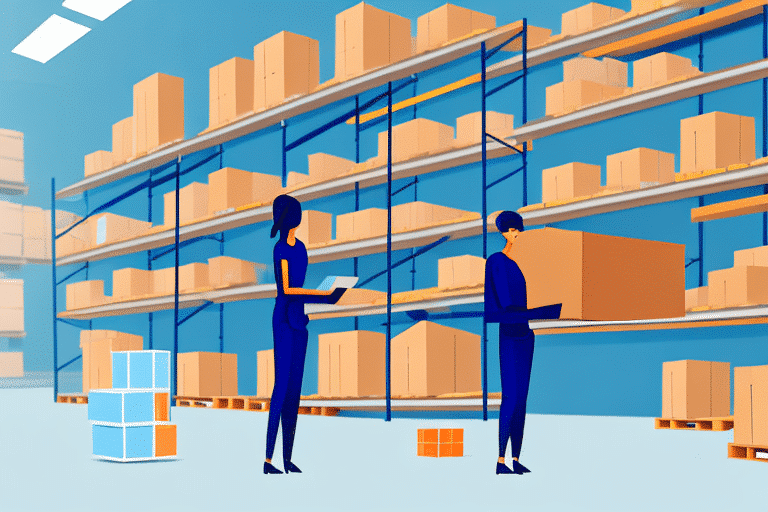Understanding the Importance of an Efficient Shopify Fulfillment Process
As an e-commerce store owner, optimizing every facet of your business operations is crucial for sustained growth and success. A pivotal area that significantly influences your business trajectory is the Shopify fulfillment process. Efficient fulfillment not only ensures timely delivery of products but also enhances customer satisfaction, leading to repeat business and positive reviews.
Impact on Customer Satisfaction and Loyalty
An efficient fulfillment process provides a seamless shopping experience, fostering trust and loyalty among customers. According to a Statista report, customer satisfaction is directly linked to repeat purchases, with 73% of customers more likely to buy again if the delivery is prompt and accurate.
Influence on Brand Reputation
Timely and accurate order fulfillment enhances your brand's reputation. Negative experiences, such as delayed shipments or incorrect orders, can lead to unfavorable reviews and deter potential customers. Maintaining high fulfillment standards is essential for building a reputable brand in the competitive e-commerce landscape.
Key Metrics to Measure Fulfillment Success
Tracking and analyzing key performance indicators (KPIs) is essential to ensure your fulfillment process operates optimally. By monitoring these metrics, you can identify areas for improvement and make informed decisions to enhance efficiency.
Order Processing Time
Order processing time measures the duration from when a customer places an order to when it is shipped. According to Shopify, reducing processing time can significantly improve customer satisfaction and increase the likelihood of repeat business.
Shipping Time
Shipping time refers to the period between shipment dispatch and delivery to the customer. Utilizing reliable shipping carriers and offering multiple shipping options can help minimize shipping time and meet diverse customer expectations.
Order Accuracy
Order accuracy is the percentage of orders fulfilled correctly. High accuracy rates are crucial for maintaining customer trust. Implementing quality control measures and leveraging automated systems can reduce errors in order fulfillment.
Inventory Accuracy
Accurate inventory management ensures that stock levels reflect actual product availability. This prevents stockouts and overselling, which can lead to customer dissatisfaction and increased return rates.
Fulfillment Costs
Monitoring fulfillment costs, including shipping fees, packaging materials, and labor expenses, helps in identifying cost-saving opportunities without compromising service quality.
Identifying and Improving Fulfillment Processes
To enhance your fulfillment operations, it's essential to identify inefficiencies and implement improvements. Conducting a comprehensive analysis of your current processes can reveal critical areas that need attention.
Conducting a Fulfillment Audit
A thorough audit involves evaluating your shipping carriers, packaging materials, labeling systems, and inventory management practices. This process helps in pinpointing bottlenecks and inefficiencies that hinder optimal performance.
Gathering Customer Feedback
Soliciting feedback through surveys and reviews provides valuable insights into customer experiences. Understanding their pain points allows you to make targeted improvements that enhance overall satisfaction.
Staying Updated with Industry Trends
Keeping abreast of the latest industry trends and best practices is vital for maintaining a competitive edge. Engaging with industry publications, attending conferences, and networking with other Shopify merchants can provide valuable knowledge and innovative strategies.
Streamlining Your Fulfillment Process for Increased Efficiency
Streamlining your fulfillment process involves optimizing workflows to enhance speed, accuracy, and cost-effectiveness. Implementing automation and leveraging technology are key strategies in achieving this goal.
Automation and Technology Integration
Incorporating automation tools, such as ShipStation for shipping management or Sellbrite for inventory management, can significantly reduce manual tasks, minimize errors, and accelerate order processing.
Optimizing Inventory Management
Effective inventory management ensures optimal stock levels and reduces the risk of stockouts or overstocks. Utilizing inventory management systems like SkuVault can provide real-time inventory tracking and automated reorder alerts.
Implementing Barcode Scanning Systems
Barcode scanning technology enhances order accuracy and speeds up the fulfillment process. By quickly identifying products and updating inventory levels, barcode systems reduce the likelihood of shipping errors and improve overall efficiency.
Essential Tools and Technologies for Shopify Fulfillment
Leveraging the right tools and technologies is crucial for optimizing your Shopify fulfillment process. These solutions automate tasks, enhance accuracy, and provide valuable insights into operational performance.
Shipping Software Solutions
Shipping software like ShipStation and ShippingEasy streamline the shipping process by automating label creation, tracking shipments, and managing multiple carriers from a single platform.
Inventory Management Systems
Systems such as SkuVault and Sellbrite provide comprehensive inventory tracking, automated reorder points, and integration with various sales channels to maintain accurate stock levels.
Warehouse Management Software
Warehouse management solutions like Fishbowl Inventory and Zoho Inventory optimize warehouse operations by managing storage layouts, tracking product movements, and facilitating efficient order picking and packing.
Outsourcing Fulfillment: Benefits of Third-Party Logistics Providers
Outsourcing your fulfillment operations to a Third-Party Logistics (3PL) provider can offer numerous advantages, especially for businesses looking to scale without the complexities of managing fulfillment in-house.
Cost Savings and Scalability
Partnering with a 3PL can reduce fulfillment costs by leveraging their existing infrastructure and expertise. Additionally, 3PLs offer scalability, allowing your fulfillment operations to grow seamlessly with your business needs.
Access to Expertise and Advanced Technology
3PL providers bring specialized knowledge and advanced technology to the table, enhancing your fulfillment efficiency. They utilize state-of-the-art systems for inventory management, order processing, and shipping, ensuring high accuracy and speed.
Focus on Core Business Activities
By outsourcing fulfillment, you can concentrate on other critical aspects of your business, such as marketing, product development, and customer service, thereby driving overall business growth.
Best Practices and Common Mistakes in Shopify Fulfillment
Adhering to best practices and avoiding common pitfalls is essential for maintaining an efficient and reliable fulfillment process.
Effective Inventory Management
Maintaining accurate inventory records prevents stockouts and overselling. Regularly updating inventory levels and conducting periodic audits ensure data accuracy and reliability.
Clear Returns Policy
Establishing a transparent and customer-friendly returns policy enhances trust and encourages purchases. Clearly communicate your returns policy on your website and in order confirmation emails to alleviate customer concerns.
Avoiding Shipment Errors
Implementing quality control measures, such as double-checking orders and using barcode scanning systems, reduces the likelihood of shipment errors and enhances customer satisfaction.
Maintaining Reliable Shipping Partnerships
Partnering with dependable shipping carriers ensures timely deliveries and minimizes the risk of lost or delayed shipments. Evaluate carrier performance regularly and adjust partnerships as needed to maintain high service standards.
Enhancing Customer Experience Through Fulfillment
Exceptional customer experience is closely tied to your fulfillment process. By ensuring timely and accurate deliveries, you can significantly improve customer satisfaction and foster loyalty.
Offering Multiple Shipping Options
Providing various shipping options, including express and standard delivery, caters to different customer preferences and needs, enhancing their overall shopping experience.
Providing Accurate Tracking Information
Offering real-time tracking updates keeps customers informed about their order status, reducing anxiety and increasing satisfaction. Integrating tracking information into your Shopify store enhances transparency and trust.
Using High-Quality Packaging
Investing in durable and aesthetically pleasing packaging protects products during transit and leaves a positive impression on customers, reinforcing your brand’s professionalism and care.
Future Trends and Innovations in Shopify Fulfillment
Staying ahead of emerging trends and innovations is crucial for maintaining a competitive edge in the e-commerce market. Here are some key trends shaping the future of Shopify fulfillment:
Same-Day and Next-Day Delivery
The demand for faster delivery options continues to rise. Implementing same-day or next-day delivery services can meet customer expectations and differentiate your store from competitors.
Use of Drones and Autonomous Vehicles
Advancements in drone technology and autonomous vehicles are revolutionizing the logistics industry. These innovations promise faster and more efficient delivery methods, especially in urban areas.
Integration of Data Analytics
Leveraging data analytics in supply chain management enables businesses to optimize inventory levels, forecast demand accurately, and enhance overall operational efficiency.
Case Studies of Successful Shopify Fulfillment Strategies
Examining real-world examples of successful Shopify stores can provide valuable insights into effective fulfillment strategies.
Misen
Misen, a cookware company, partnered with a 3PL provider to streamline their fulfillment operations. This collaboration resulted in a 20% reduction in fulfillment costs and improved delivery times, enhancing overall customer satisfaction.
MunchPak
MunchPak, an international snack subscription service, implemented automated fulfillment solutions that reduced order processing times by 80%. This efficiency boost allowed them to scale their operations effectively while maintaining high service standards.
Conclusion
Optimizing your Shopify fulfillment process is essential for driving efficiency, reducing costs, and enhancing customer satisfaction. By monitoring key metrics, identifying areas for improvement, leveraging advanced tools and technologies, and adhering to best practices, you can create a robust fulfillment system that supports your business growth. Whether you choose to manage fulfillment in-house or outsource to a third-party provider, continuous evaluation and adaptation are key to maintaining an effective and reliable fulfillment process.








